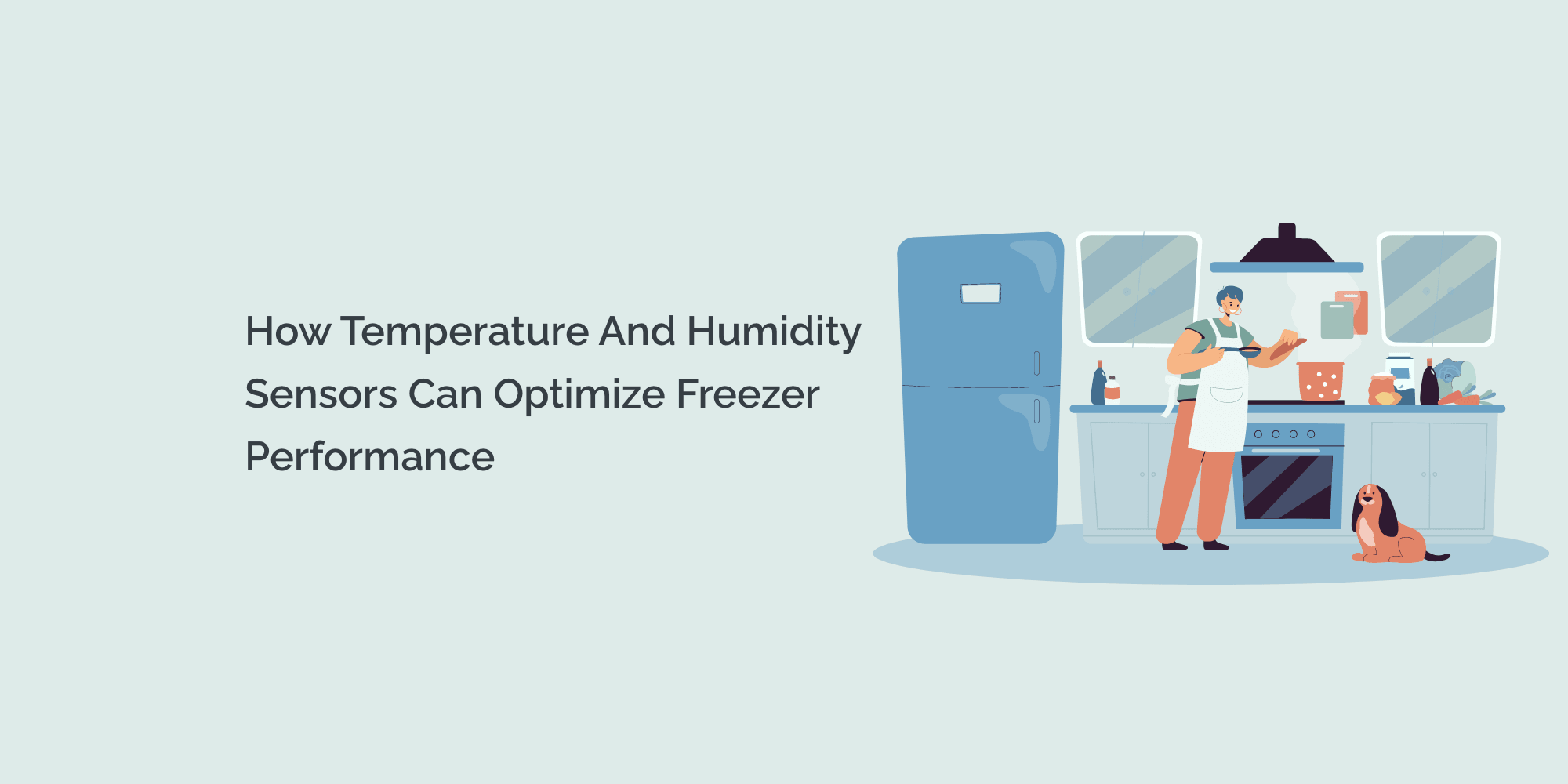Freezers play a crucial role in preserving the quality and integrity of sensitive items, such as food, pharmaceuticals, and scientific samples. Temperature and humidity control are vital factors in ensuring optimal storage conditions. Temperature and humidity sensors are essential to achieve precise control and optimize freezer performance. This comprehensive guide will explore how temperature and humidity sensors can enhance freezer performance, improve efficiency, and safeguard stored items. We will discuss the benefits of sensor-based monitoring, explore different sensor types, highlight their applications in various industries, and provide practical tips for optimizing freezer performance using these sensors.
Understanding the Importance of Temperature and Humidity Control
Maintaining proper temperature and humidity levels is critical in preserving the quality, safety, and longevity of items stored in freezers. Temperature control ensures that perishable goods remain frozen, while humidity control prevents moisture-related issues, such as ice formation, condensation, or product degradation. Conversely, fluctuations in temperature and humidity can lead to spoilage, loss of potency in medications, and compromised scientific samples.
Benefits of Sensor-Based Monitoring
Temperature and humidity sensors offer numerous benefits in optimizing freezer performance:
- Real-Time Monitoring: Sensors provide continuous, real-time monitoring of temperature and humidity levels inside the freezer, allowing for immediate detection of any deviations or abnormalities. This helps prevent critical storage conditions from being compromised.
- Precise Control: Sensors provide accurate temperature and humidity measurements, enabling precise control over freezer environments. This ensures that stored items are kept within the desired range, enhancing product quality and safety.
- Early Warning Systems: Sensors can be programmed to trigger alarms or notifications when temperature or humidity levels exceed predefined thresholds. This early warning system enables prompt action, reducing the risk of damage to stored items and preventing costly losses.
Types of Temperature and Humidity Sensors
- Thermocouples: Thermocouples are widely used temperature sensors that rely on the principle of thermal conductivity. They measure temperature by detecting voltage changes resulting from temperature differences between two dissimilar metals. Thermocouples are durable, cost-effective, and offer fast response times, making them suitable for various freezer applications.
- Resistance Temperature Detectors (RTDs): RTDs are temperature sensors that measure resistance changes in a metal wire as a function of temperature. They provide high accuracy and stability, making them ideal for applications that require precise temperature control, such as pharmaceutical storage or scientific research.
- Thermistors: Thermistors are temperature-sensitive resistors that change their resistance in response to temperature variations. They are compassionate and offer a wide temperature range. Thermistors are commonly used in commercial freezers and refrigerators due to their cost-effectiveness and accuracy.
Applications of Temperature and Humidity Sensors
- Food Industry: In the food industry, temperature and humidity sensors ensure that perishable goods are stored optimally to maintain freshness, quality, and safety. From large-scale cold storage facilities to refrigerated transportation, sensors play a crucial role in preserving the integrity of food products.
- Pharmaceuticals: Temperature and humidity control are essential in pharmaceutical storage to maintain the efficacy and stability of medications. Sensors help monitor and regulate storage conditions, ensuring that drugs retain their potency and meet regulatory requirements.
- Biomedical and Scientific Research: Temperature and humidity sensors are critical in biomedical and scientific research settings where the integrity of samples and specimens must be maintained. From laboratory freezers to cryogenic storage units, sensors ensure precise control over temperature and humidity, safeguarding valuable research materials.
Certainly! Here are some frequently asked questions (FAQs) related to temperature and humidity sensors in freezers:
Why are temperature and humidity sensors important in freezers?
Temperature and humidity sensors are crucial in freezers to monitor and control storage conditions. They maintain the desired temperature and humidity levels, preventing spoilage, degradation, or damage to sensitive items in the freezer.
How do temperature and humidity sensors work in freezers?
Temperature sensors measure the ambient temperature inside the freezer using various technologies such as thermocouples, RTDs, or thermistors. Humidity sensors, on the other hand, measure the moisture content in the air using capacitive or resistive principles. Both types of sensors provide accurate readings that help maintain optimal storage conditions.
What is the benefit of real-time monitoring provided by temperature and humidity sensors?
Real-time monitoring allows immediate detection of any temperature or humidity fluctuations inside the freezer. As a result, it enables timely intervention to address issues and prevent potential damage to stored items. Real-time monitoring also helps maintain regulatory compliance by providing documentation of storage conditions.
Conclusion
Temperature and humidity sensors are:
- Invaluable tools in optimizing freezer performance.
- We are ensuring precise control.
- We are safeguarding the integrity of stored items.
Real-time monitoring, early warning systems, and accurate measurements provided by these sensors help prevent damage, maintain compliance, and reduce losses. Organizations can enhance freezer performance, improve efficiency, and protect valuable assets by understanding the different sensor types and their applications and implementing best practices for sensor placement, calibration, and maintenance. Incorporating temperature and humidity sensors into freezer systems is a worthwhile investment that pays off in terms of product quality, regulatory compliance, and peace of mind.








